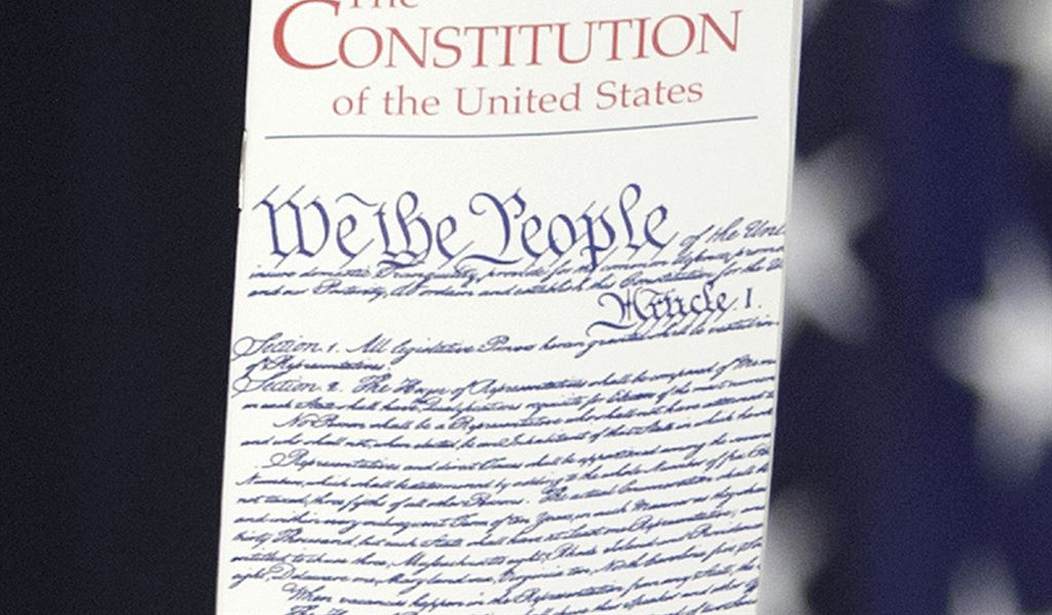Two hundred and thirty years ago, three of our Founding Fathers authored a series of essays that came to be known as the “Federalist Papers.” Thomas Jefferson years later characterized these writings as the “best commentary on the principles of government which ever was written.” In other words, “if you want to understand how American government is supposed to function, read the ‘Federalist Papers.’”
Sadly, it appears obvious few, if any, of the key protagonists in today’s political battles between the three branches of our government that were established in that bygone era (which I consider our “Greatest Generation”) have read, much less truly understand the principles embodied in that collection of essays.
Most Americans are at least vaguely familiar with the fact that our federal government is comprised of three branches – Legislative, Executive, and Judicial. The men who framed our Constitution, however, incorporated into the mechanisms it created many other important principles; including several that were designed expressly to distance our government from that of Great Britain, the country from which we were splitting.
In establishing the position of “President,” for example, our Framers made clear that this person was not to be selected by, or to be a part of, the Legislative Branch. This is distinct from the British model, in which the chief executive is the “Prime Minister”; chosen not by the voters in general election, but by his or her fellow Members of Parliament, and therefore answerable directly to that body.
By contrast, in our country, the president, as the chief executive, is elected by the citizenry at-large (technically, through “electors”), and therefore answerable to the People of the entire country; not to the Legislative Branch.
Recommended
Conversely, and in another important principle incorporated into the Constitution, Members of the Legislative Branch (the two Houses of Congress) neither answer to nor are to be controlled by the President. Rather, each Member of Congress (whether Representative or Senator) is to reflect and be answerable to the constituents of his or her district or state; not to the President. While those interests may from time to time coincide, U.S. Representatives and Senators are not serving in that august institution merely to do a president’s bidding.
So, what has changed (other than a profound ignorance of the principles undergirding our constitutional form of government)? Why do Republican Members of Congress by and large consider it their bounden duty to use their powers and responsibilities to do the bidding of a president simply because the person occupying that office is of the same political party as are they? Similarly, why do Democrats operate in the same mode when the White House is occupied by a person with a “D” after their name?
In a word, what has turned our political structure on its head, is the one thing our Founding Fathers disdained and warned us about – party politics. Especially in the closed, two-party system that has constrained politics in America for more than a century and a half, the primary allegiance deemed important to the vast majority of Representatives and Senators now serving, is to the President who happens to be of their same political party. If the president is a Republican, the congressional leaders of that party consider it their obligation to employ their powers to enact his agenda; and failure to toe that line is considered cause for punishment. The Democrats operate in just the same manner.
Thus have the lines between the Executive and Legislative Branches become muddled, if not largely erased; and most Members of Congress now rarely assert a voice or an agenda independent from that of the president. Members not of the president’s party consider it their primary responsibility to oppose the Administration’s agenda; those who share the president’s political affiliation view it as their almost sacred responsibility to do whatever they can to support the agenda of “their” president.
The current battle between the Congress and President Trump regarding “the wall” is but the most recent example of how far we have drifted from the principle of a Congress as not only a “co-equal” branch of government, but an independent one. Republicans assert that they and their fellow GOP members “must” support the wall simply because President Trump demands it and made it a signature issue of his 2016 campaign. Democrats adamantly oppose the “wall” and anything else Trump advocates, because he is not of their party and based on the fact he desires it.
What is at stake here is not “the wall” or any other specific program championed by this president or one of his predecessors. What has been lost – and is an ingredient vital for the proper functioning of our country’s government for the benefit of the citizenry – is a Legislative Branch fueled by independent regard for ideas and principles rather than blind loyalty to a political party.

























Join the conversation as a VIP Member